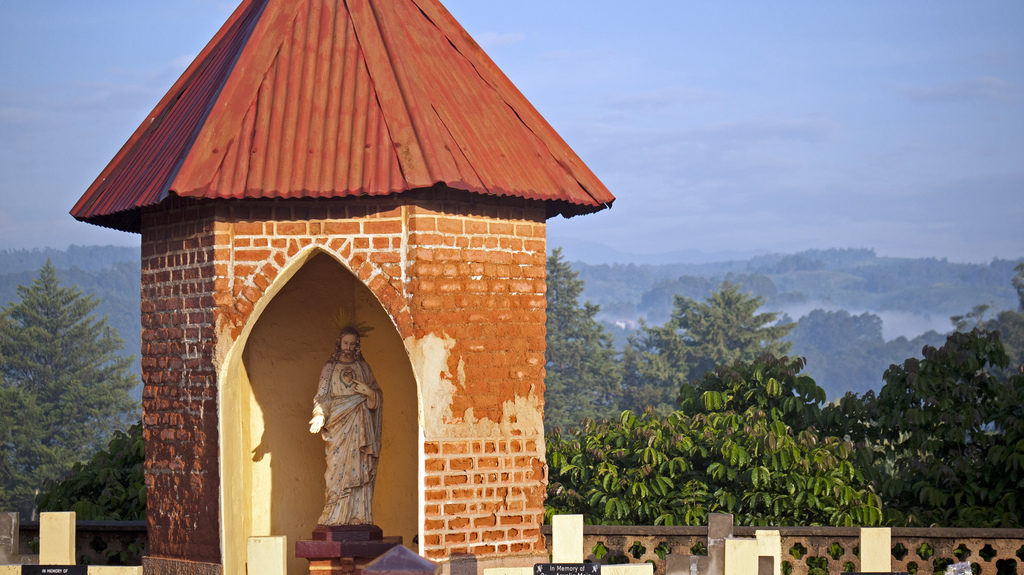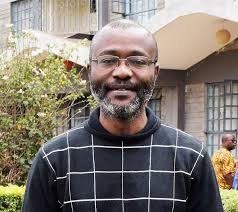
In this post, first published on the CIHA blog in English and on Cameroon-Info.Net in French, CM researcher Ludovic Lado considers the role of religion as a vehicle to speak truth to power, on the one hand, and religions as institutions existing within the state system, on the other. In the case of the Catholic Church, which has a long tradition of diplomatic relations with political leaders, the effort to maintain positive relationships with heads of state can generate actions incongruous with, or in opposition to, the prophetic role of Catholicism on the ground.
Writing this text is for me a Lenten practice, an act of penitence for my people’s cause. I write in a hotel room in Rome, where I traveled in response to an invitation to an international scientific conference. But I was distracted by a curious coincidence: the state visit of Cameroon’s President Paul Biya on the same dates. Such a visit is technically called diplomacy. I learned that, in the course of this visit, President Biya received the gold medal of the Italian University Rectors’ Conference, during a ceremony in which Biya was lauded for his “great achievements” in promoting culture and higher education in Cameroon. But in fact, what is the state of higher education in Cameroon? And why has Italy become the premier western destination for Cameroonian students? It is precisely because our universities are not doing well. In distinguishing between the person and the office of the president of Cameroon, I wondered whether the Italian university officials spoke of the real Cameroon or simply read a speech prepared for them. Addressing Italian investors, one heard President Biya joke about his more than 30 years in power. Better to laugh than cry! Let us not forget that political power is a question of life and death for our peoples. And western economic interests make a mockery of democracy and human rights in Africa. It is too bad that some continue to count on western leaders to help them find the path to liberty.
How should we explain that this is a troubled time in the history of Cameroon, in which the Biya system is shamefully repressing the Anglophone resistance to Francophone assimilation, erasing all forms of dissent while Italian officials, hungry for investments, choose to treat President Biya as a hero of culture and higher education? Who is mocking whom in the end? Of course it is the poor Cameroonians who are daily victims of the political economy of violence that supports the world economy. This diplomacy, punctuated by compromises and silences of complicity and guilt are nourished by blood, like the genocide in the eastern DRC or the human dignity sacrificed on the altar of the economic interests of multinational companies in neighboring countries. Such hypocritical diplomacy makes the global political and economic order a veritable structure of sin according to the social teachings of the Church. Have the Italian officials forgotten the Lampedusa drama? And if they have not forgotten it, do they ignore the fact that it is the mediocre regimes like that of Mr. Biya that push their young people to emigrate in dangerous conditions across deserts and seas? Under these circumstances, a diplomacy of complacency is a diplomacy of complicity.
When I learned that President Biya would be received by the Pope, the head of the Catholic Church, I couldn’t help but think of the dialogue between Jesus and Pontius Pilate during the Passion. Jesus told Pilate, “I came into the world to attest to the truth. Whoever is of the truth listens to my voice.” Pilate asked, “What is the truth?” (John 18: 37-38). I ask myself whether the dialogue between the Pope and President Biya will center on the truth, that which would liberate Mr. Biya and his people (John 8: 32). I wonder whether the Vatican diplomacy with its network of apostolic delegates serves this truth, to which the Church must witness, the body of Christ, during good times and bad. What do the nuncios say to the Pope about our heads of state, who smile at the Vatican while trampling on human rights, public freedoms, and human dignity in their own countries? It depends on these apostolic delegates, the ambassadors of the Vatican in our countries. Unfortunately, these nuncios have the unlucky job of maintaining good diplomatic relations with the State, which is good for the mission of the Church; paradoxically, though, this sometimes comes at the price of its prophetic role. That is also called diplomacy and I often wonder what it has to do with the Gospel, serving justice, and the truth of these times. I hear that it is up to the local churches and not the apostolic delegate who is usually a foreigner, to assume such a prophetic role vis-à-vis the political insanity that is costing thousands of lives in our countries. But bishops and priests are themselves afraid of Pontius Pilate’s reprisals. So the Church is ensconced, in the name of diplomacy, in a system based on hypocrisy, one that masks the truth and feeds on human lives. I dream of the day when my Church will distance itself from this diplomacy of complacency that harms the poor.” May the time come when every head of State who goes to meet the Pope and every bishop or priest fears hearing the prophetic message of John the Baptist to Herod, “You do not have the right to take the wife of your brother” (Matthew 14: 4). We know that John the Baptist ended up in prison where he was beheaded. The Church does not have the right to silence the truth through fear of persecution.
By way of conclusion, I dare to believe, but without giving into illusions, that the reader of goodwill will understand that the crux of my dissent is not Mr. Biya as a person, but rather the unhealthy political system that he represents, and that has caused suffering to so many of my compatriots for decades. It is this well-oiled system that every Christian has the obligation to subvert until the point of delivery to the scribes of Pontius Pilate, to suffer and die like the Savior. Isn’t it better to die from love for the truth rather than from malaria? I do not fear because Easter is near! Thus begins my own writing of a return to my village of origin.
Translated from French to English by Cecelia Lynch.

